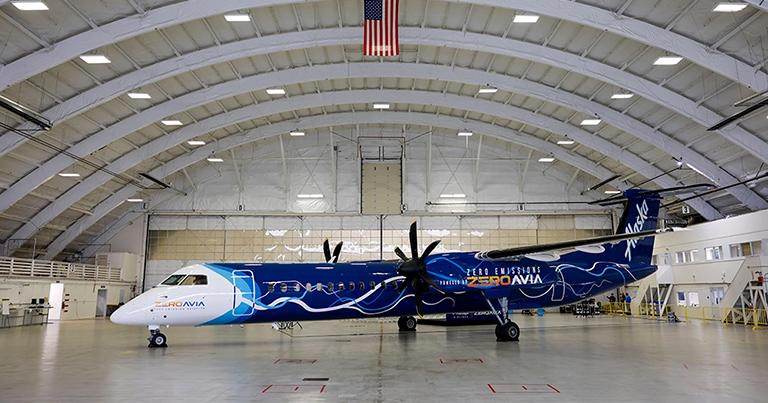
Alaska Airlines has presented a Bombardier Q400 to ZeroAvia that will be retrofitted with a hydrogen-electric propulsion system in an effort to expand the reach and applicability of zero emissions flight technology.
“This is a great step forward in aviation innovation, to help create a new future of flight – right here at home,” said Ben Minicucci, CEO, Alaska Airlines. “Alaska Airlines has defined a five-part journey to achieve net zero carbon emissions long-term, but we can’t get there alone. New technologies are required to make that future possible, and we’re thrilled to partner with industry leader ZeroAvia to make new zero emissions options a reality.”
ZeroAvia has also debuted its breakthrough multi-megawatt modular electric motor system in a 1.8MW prototype configuration. Combined with higher temperature PEM fuel cells and advanced power electronics, the leading-edge electric motor technology is one of three key building blocks for enabling commercially-relevant hydrogen fuel cell engines for larger aircraft.
Aligning ZeroAvia’s powertrain with the Dash 8-400 airframe is designed to represent a commercially-viable zero-emission aircraft with fuel cell engine technology around five times more powerful than what has been demonstrated anywhere to date.
“Demonstrating this size of aircraft in flight, powered entirely by novel propulsion, would have been unthinkable a few years ago,” said Val Miftakhov, founder and CEO, ZeroAvia. “Launching this programme puts us on track for a test flight next year, and accelerates our progress toward the future of zero-emission flight for Alaska Airlines and for the world at large.”






